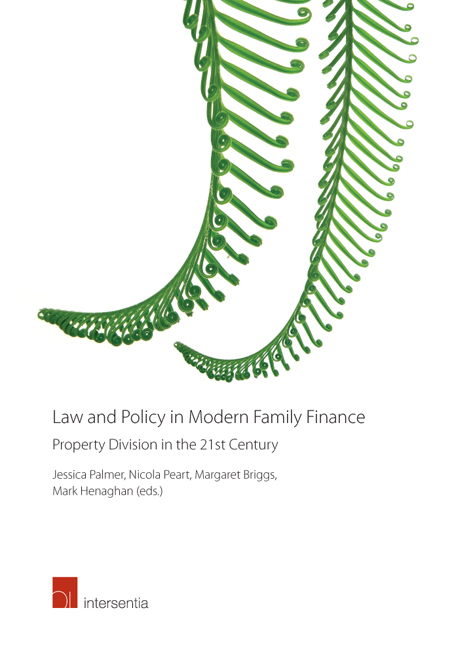Book contents
- Frontmatter
- Foreword
- Acknowledgements
- Contents
- Table of Cases
- List of Contributors
- Chapter 1 Introduction
- PART I WHO SHOULD BE COVERED BY A PROPERTY SHARING REGIME?
- PART II WHAT PROPERTY SHOULD BE COVERED BY A PROPERTY SHARING REGIME?
- PART III HOW SHOULD PROPERTY BE SHARED AT THE END OF A RELATIONSHIP?
- Index
Foreword
Published online by Cambridge University Press: 29 September 2018
- Frontmatter
- Foreword
- Acknowledgements
- Contents
- Table of Cases
- List of Contributors
- Chapter 1 Introduction
- PART I WHO SHOULD BE COVERED BY A PROPERTY SHARING REGIME?
- PART II WHAT PROPERTY SHOULD BE COVERED BY A PROPERTY SHARING REGIME?
- PART III HOW SHOULD PROPERTY BE SHARED AT THE END OF A RELATIONSHIP?
- Index
Summary
If there ever was a period of maturity in my professional life it was largely devoted to family finances either in silk, as a trial judge, or in the Court of Appeal. So when Mark Henaghan asked me to write a foreword for this book of collected papers I did not hesitate to agree, partly from my familiarity with the territory and partly from my regard for Mark and his ability to conceal his scholarship in waves of warmth and irreverence.
The Introduction explains the context in which the papers were written:
November 2015: the New Zealand Minister of Justice refers to the Law Commission a comprehensive review of the Property (Relationships) Act 1976 and requests recommendations for reform.
December 2016: the four editors convene the International Colloquium at which the papers were presented.
Ahead, as I write, lies the publication of the papers and the Law Commission's report and recommendations. I am in no doubt that this is how family law reform should be managed: Law Reform Commission expertise supplemented by international and comparative expertise to guide the legislators.
New Zealand seems to have a healthy readiness to legislate in this dangerous territory: dangerous because many politicians have had personal experience and leaders fear that public reaction to legislation will depress their prospects of re-election. New Zealand seems to follow the precept instilled in children here: if at first you don't succeed, try, try, try again. Would that the Westminster parliament would embrace the same spirit of adventure. For the UK, excepting Scotland, we have been 45 years without major reform and it has had to be the judges who have re-interpreted the 1970 statute to reflect social and other change.
As the editors write in their Introduction, the relevance of the themes analysed in the 15 papers is unrestricted:
‘ [T]he wider discussion to which this book contributes is an important one that must be ongoing. While the context in which these chapters were written was the reform of New Zealand's rather unique approach to the sharing of property in intimate relationships, we are confident that the ideas and debates discussed in this book will be of value beyond the shores of Aotearoa New Zealand.
- Type
- Chapter
- Information
- Law and Policy in Modern Family FinanceProperty Division in the 21st Century, pp. v - viPublisher: IntersentiaPrint publication year: 2017

